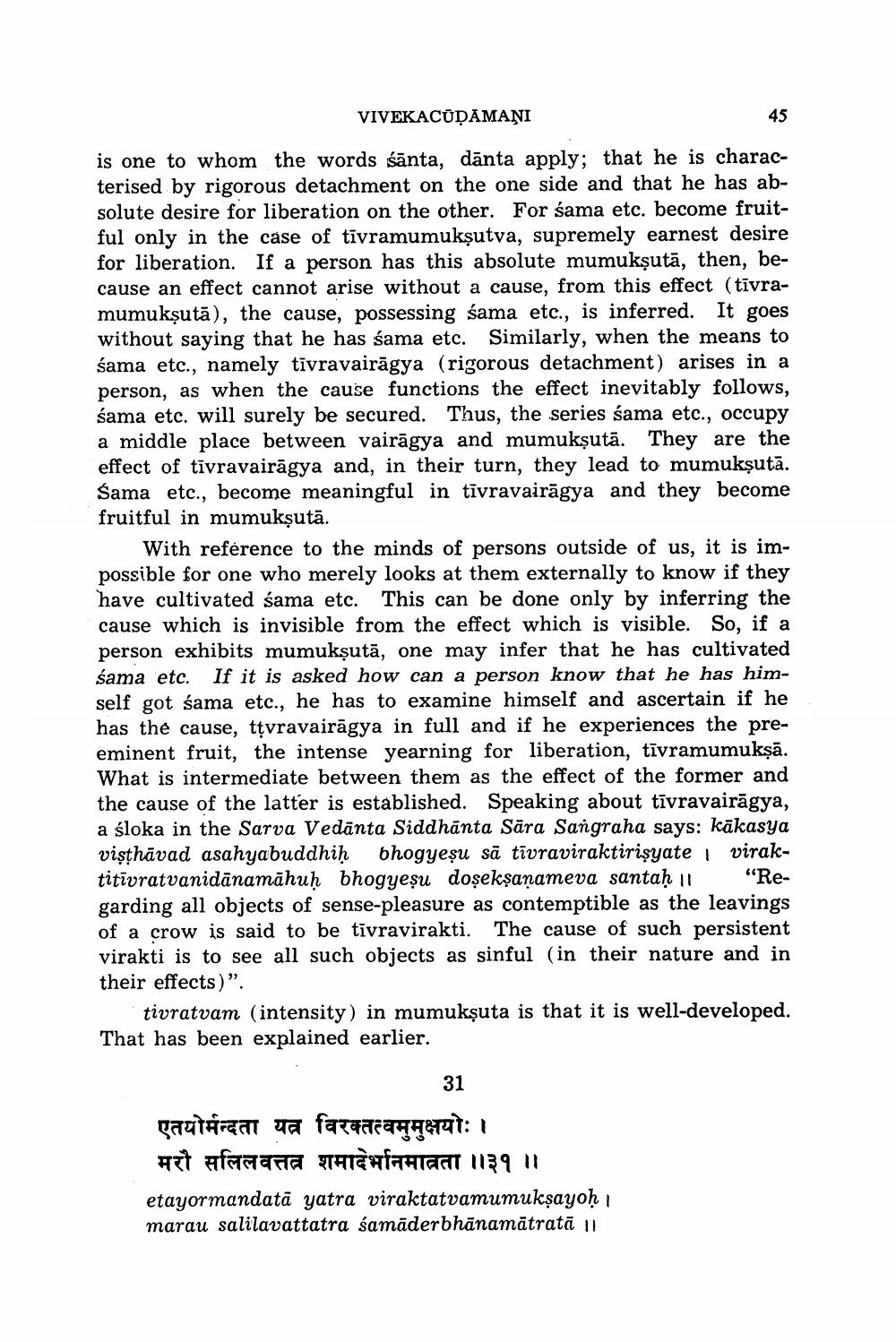________________
VIVEKACŪDAMAŅI
is one to whom the words śānta, dānta apply; that he is characterised by rigorous detachment on the one side and that he has absolute desire for liberation on the other. For śama etc. become fruitful only in the case of tivramumuksutva, supremely earnest desire for liberation. If a person has this absolute mumuksutā, then, because an effect cannot arise without a cause, from this effect (tivramumukṣutā), the cause, possessing sama etc., is inferred. It goes without saying that he has sama etc. Similarly, when the means to śama etc., namely tivravairāgya (rigorous detachment) arises in a person, as when the cause functions the effect inevitably follows, śama etc. will surely be secured. Thus, the series sama etc., occupy a middle place between vairāgya and mumuksută. They are the effect of tivravairāgya and, in their turn, they lead to mumuksuta. Sama etc., become meaningful in tivravairāgya and they become fruitful in mumuksutā.
With reference to the minds of persons outside of us, it is impossible for one who merely looks at them externally to know if they have cultivated śama etc. This can be done only by inferring the cause which is invisible from the effect which is visible. So, if a person exhibits mumuksutā, one may infer that he has cultivated sama etc. If it is asked how can a person know that he has himself got sama etc., he has to examine himself and ascertain if he has the cause, tțvravairāgya in full and if he experiences the preeminent fruit, the intense yearning for liberation, tīvramumuksā. What is intermediate between them as the effect of the former and the cause of the latter is established. Speaking about tīvravairāgya, a śloka in the Sarva Vedānta Siddhānta Sāra Sangraha says: kākasya vișthāvad asahyabuddhiḥ bhogyeșu sā tīvraviraktirișyate | viraktitīvratvanidānamāhuḥ bhogyeşu doşekşanameva santaḥ 11 "Regarding all objects of sense-pleasure as contemptible as the leavings of a crow is said to be tivravirakti. The cause of such persistent virakti is to see all such objects as sinful (in their nature and in their effects)”.
tivratvam (intensity) in mumukṣuta is that it is well-developed. That has been explained earlier.
31
एतयोर्मन्दता यत्र विरक्तत्वमुमुक्षयोः । मरौ सलिलवत्तत्र शमादेर्भानमात्रता ॥३१॥ etayormandata yatra viraktatvamumukşayoh marau salilavattatra samāderbhānamātratā 11




